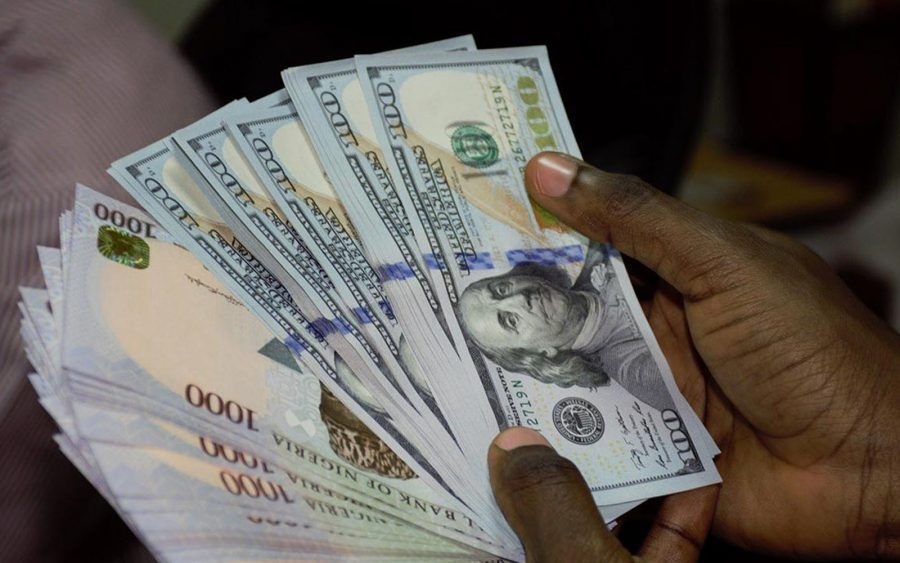It’s been almost a month since the Central Bank of Nigeria stopped the sale of forex to Bureau De Change (BDC) operators, leaving many to wonder how these parallel market operators are staying in business in the wake of the new CBN policy.
The BDC operators serve an essential role as informal financiers to the Nigerian economy, thus laying a formidable premise for collaboration with the apex bank. However, due to greed and the quest for abnormal profits at the expense of Nigeria’s currency stability, the apex bank had to halt this collaboration as the BDCs could no longer be reined in.
The Governor of the CBN, Godwin Emefiele, ended this relationship while addressing the press during the MPC briefing on Tuesday, 27th July 2021.
He said, “In particular, we have noted with disappointment and great concern that our Bureau De Change operators have abandoned the origin objective for their establishment, which was to serve retail end users who need $5,000 or less. Instead, they have become wholesale dealers, illegally in foreign exchange to the tune of millions of dollars per transaction.
“Despite the fact that Nigeria is the only country in the world today where a central bank sells dollars directly to the Bureau De Change, operators in the Nigeria Bureaus De Change segment have not reciprocated the bank’s gesture to help maintain price stability in that market.”
Although there have been reports of a possible appeal to the apex bank, the resolve of the governor seems unshaken. Nairametrics sort to find out how the operations of the BDCs have been impacted by these developments.
A BDC operator who opted to speak anonymously to our analyst on the issue stated that BDCs have another way of making money outside the CBN sale.
He said, “BDCs are not closing up shops; they’re very operational because asides from CBN disbursing cash to BDCs, there are other ways BDCs make money which include; funds inflow and international transfer.
“Funds inflow is when money comes in from outside Nigeria, mostly from the US, Uk, and other parts of Europe. Because of the type of account BDCs operate, we can collect a huge sum of money; we normally help customers accept these inflows from abroad and facilitate outflows for payment to countries like China. This is because there are limits to how much one can deposit/ send on their domiciliary account.
“However, BDC operators have relationships with parties worldwide that can facilitate smooth and seamless payments.”
When asked how he sourced for foreign exchange within Nigeria, he said, “There is no way to source for foreign exchange in the country, right now.”
Abbas, another BDC operator, stated that there is a need to be innovative in handling difficult situations in any business in Nigeria and BDCs are not an exception. “Those who can’t keep up would have to close shop,” he quipped.
“Nigeria is a place only for the strong, and the BDC operators who cannot innovate around challenges would have to close up their shops. Although it’s difficult to get dollars, for now, me and most of my colleagues have found that dealing with customers directly has been more profitable since we don’t have to bother about the N35 million for a license,” he disclosed.
When probed further, he stated, “We use customers who have proper documentation such as passport and travel documents to collect the maximum amount for personal travel allowance (PTAs) or business travel allowance (BTAs) from the banks. This serves as a major source of forex supply to BDC operators especially due to the high number of individuals interested in travelling out of the country.
“This avenue has proven very lucrative as it has enabled us to buy dollars cheaper and sell at black-market rate, maintaining significant profits. Although the sustainability of this method can be called to question, I am optimistic that more innovative channels will open up soon.”
Ango, a BDC operator, also corroborated that BDC operators work hand-in-hand with individuals to get FX from banks. He said, “If someone wants to take personal travel allowance, he will show us his documentation, and we would fund his account to get the maximum amount of dollars from the bank. Everybody gets a cut, so it makes the transaction run smoothly. For now, the licenses are useless because the CBN is not giving us dollars anymore.”
Bottomline
BDC Operators are now relying more than ever on peer to peer transactions to fund their dollar supplies amidst the CBN dollar sale ban. Those with stronger networks of buyers and sellers are able to attract more business while those without, struggle with volume.
However, exchange rates are still transacted at exorbitant black market rates rather than the rates preferred by the central bank.
The reactions of the BDCs to the apex bank’s ban calls into question the effectiveness of monetary policy in Nigeria. Is it possible to side-line a significant player in the foreign exchange space and deal with the banks directly? The end should justify the means in this situation; yet, little has been seen in terms of results since the naira remains extremely weak against the dollar.
At the time of writing this article, the rate was N520 to a dollar at the parallel market, indicating that the demand is still pretty high for black-market forex.
